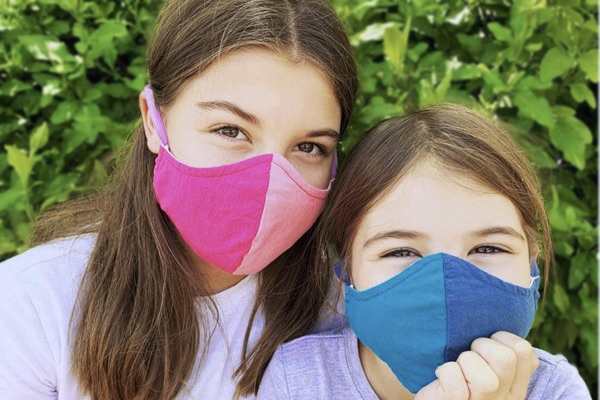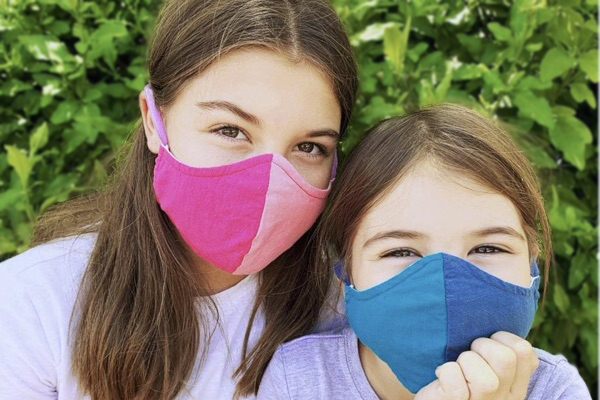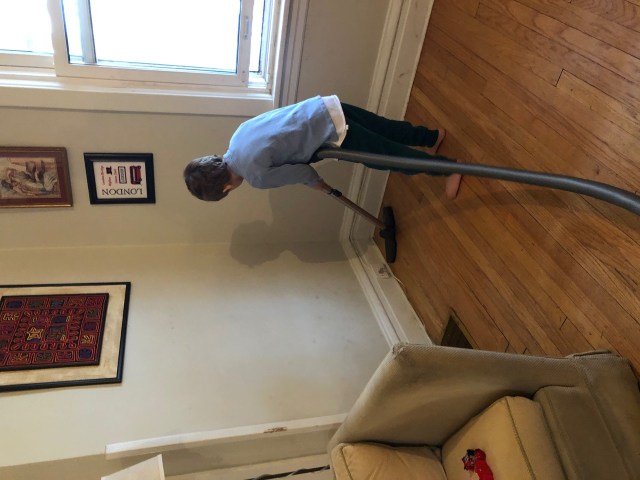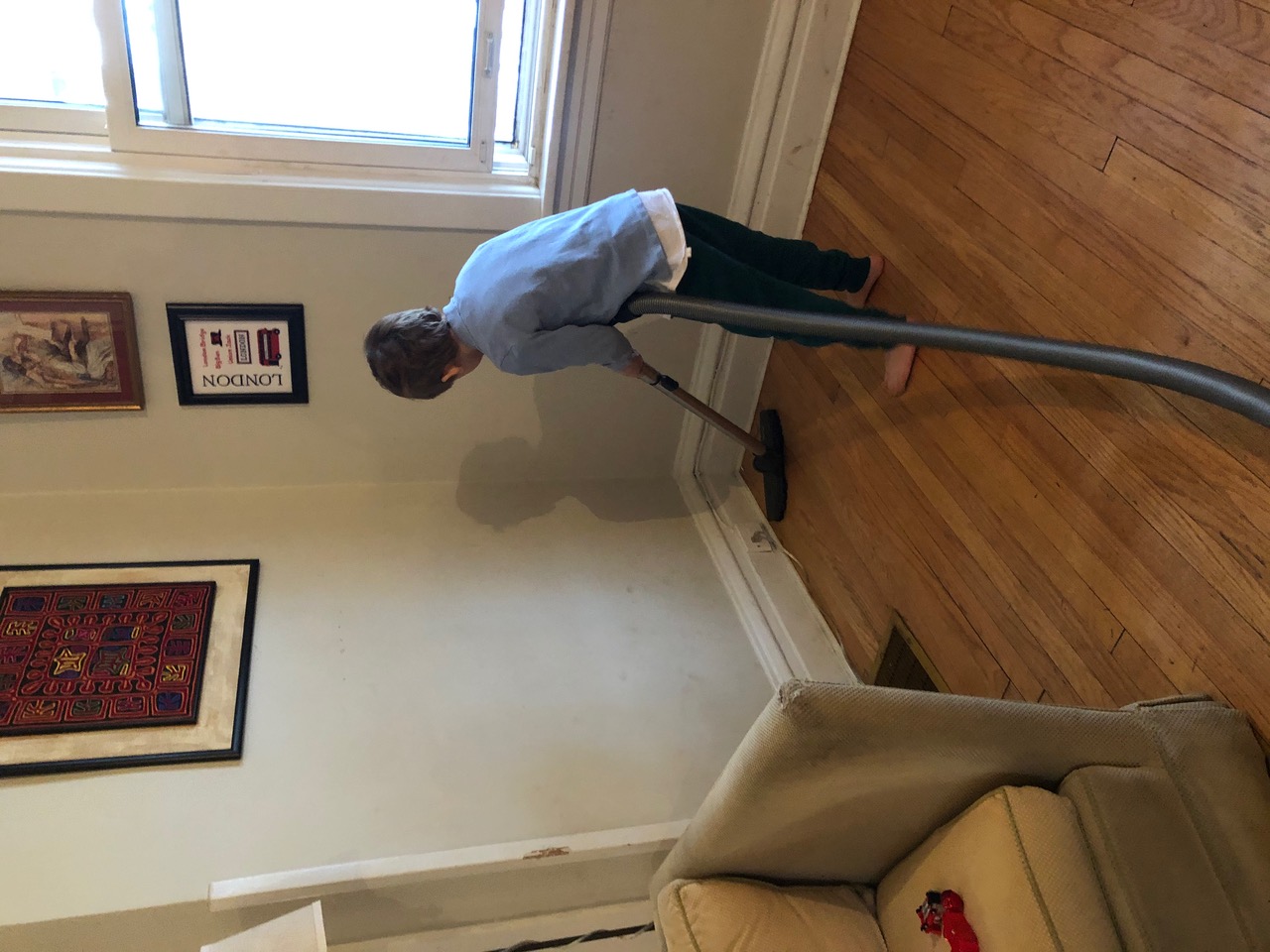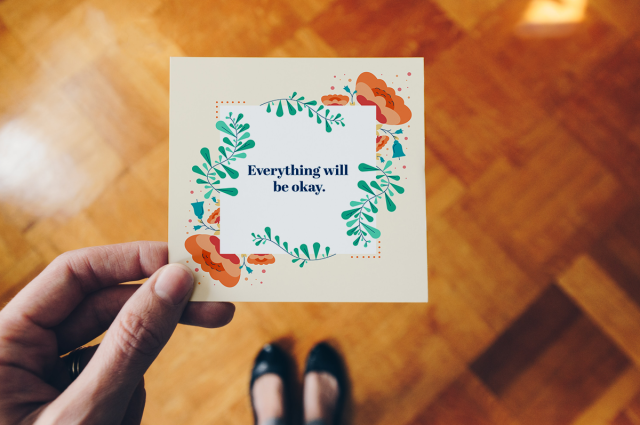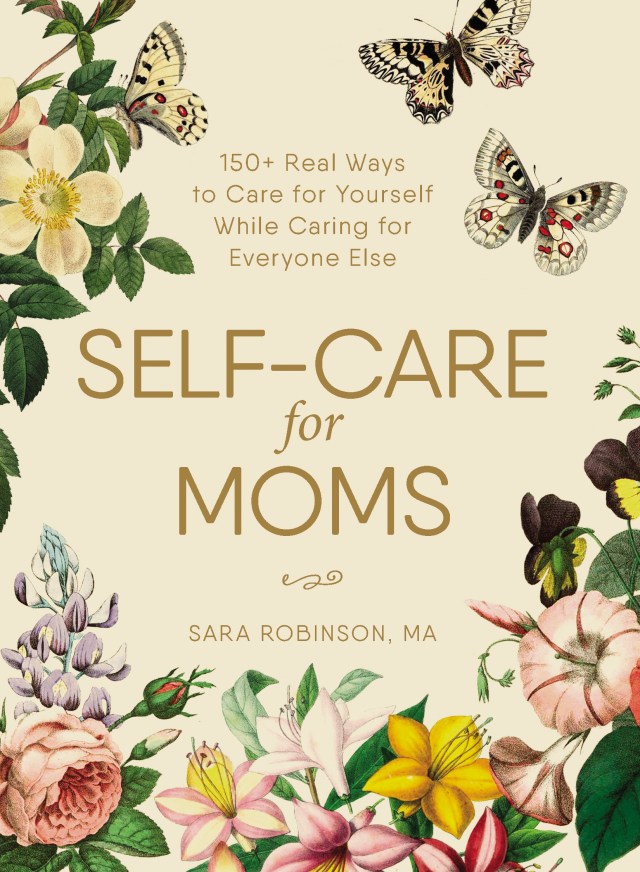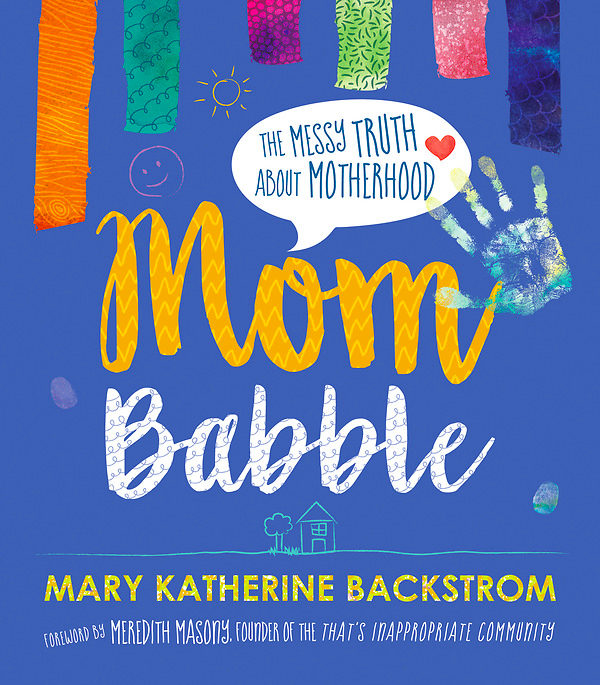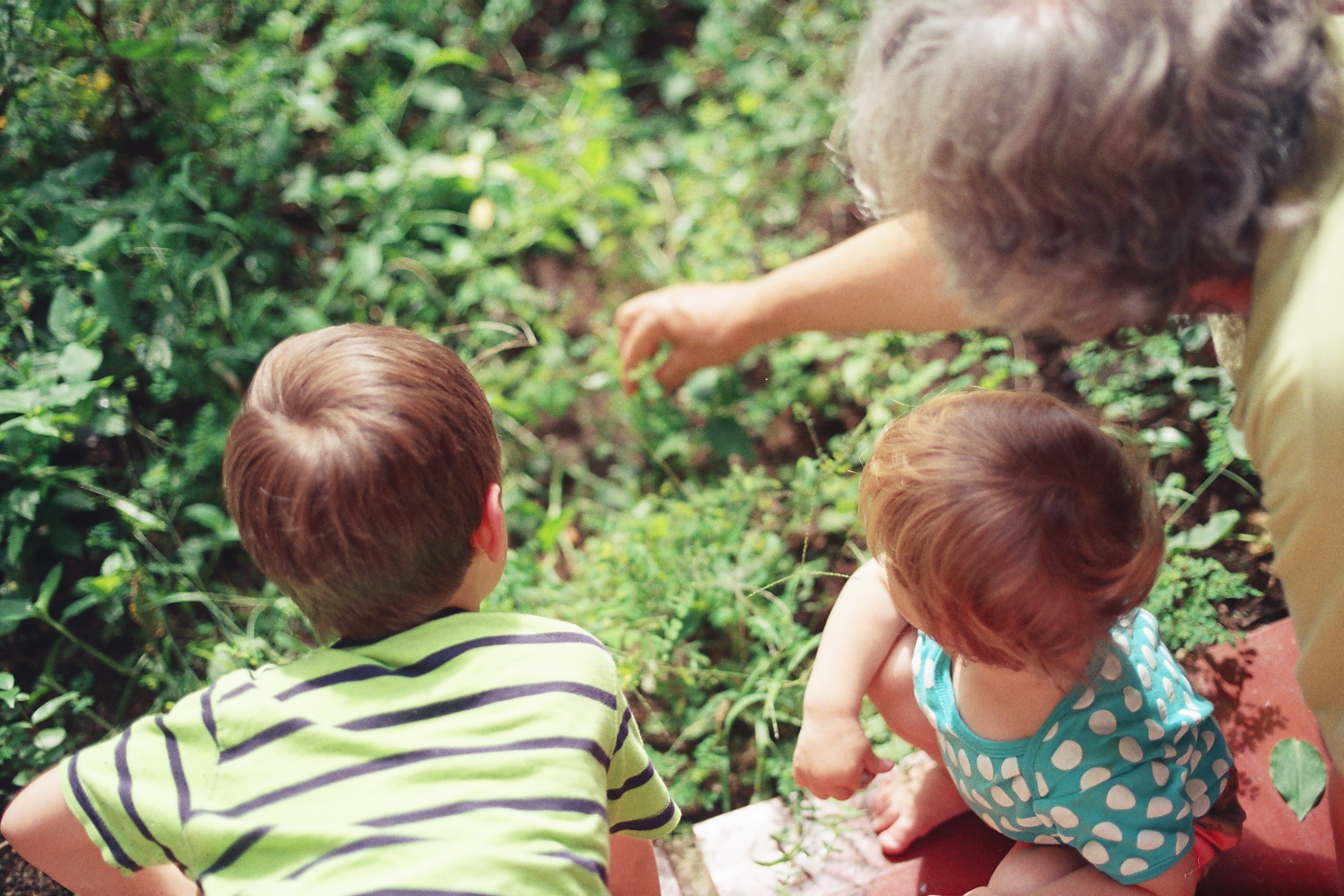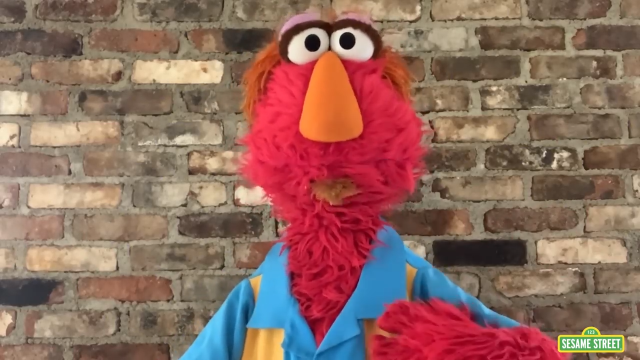
COVID-19 has caused both an increase in our stress levels and a rise in alcohol sales. We asked mental health experts for tips on how to relax without pouring that glass of wine.
The COVID-19 pandemic has disrupted the lives of families and created stress for parents and children alike. While many popular memes joke about drinking as a normal response to parenting stress, it’s harder to find evidence-based advice on reducing and preventing stress and how to recognize an overreliance on alcohol.
Let’s start by acknowledging that parents are feeling a lot of pressure. More than a quarter of parents surveyed in June 2020 told researchers that upheavals in daily life caused by the pandemic have had a negative impact on their mental health, interrupted their ability to support their families, and cut them off from their social support networks.
Families with young children have been hit especially hard as their access to child care has been severely limited. In almost half of the cases where parents reported their mental health had suffered, they had also lost their usual child care arrangements.
Changes Are Hard for Both Parents and Children
Kevin Basil is a single father and licensed social worker who counsels children and teens in Pennsylvania. Since schools closed in mid-March he has conducted regular video sessions with his clients and their parents. “At first it was this panic with the kids being out of school,” he said. “We take for granted that children will struggle with change, but we forget how difficult it is for parents to make those adjustments.”
The parents he works with have begun to adapt. The biggest challenge he sees is their aversion to dealing openly with their struggles. “Parents often have a ‘grin and bear it’ mentality,” he says. “They see the value of the coping mechanisms we teach the kids—mindfulness, journaling, deep breathing, reframing—but they think because they’re adults they’re supposed to just keep it together.”
Kevin suggests that the tools therapists teach aren’t only for children. “Anger management, impulse control strategies, a lot of them overlap. Adults aren’t that different.” Positive personal habits are always useful, but they are particularly important right now because social support, a highly effective way to reduce parenting stress, isn’t as accessible to most families. Kevin recommends a few ideas for dealing with stress as well as positive coping skills.
- Deep breathing is available to most people at any moment. Stress causes us to breathe more shallowly, while deep, slow abdominal breathing helps us feel safe.
- Journaling can have a cathartic effect similar to talking with a friend. Once you have written down a problem or worry, you don’t have to hold onto it any longer.
- Self-care time means taking as little as 15 minutes to do something pleasurable. Kevin recognizes this can be especially hard for parents of young children, who may need to talk through their barriers for making time for themselves with a friend or therapist
More Positive Coping Skills
1. Shift Your Perspective
Researchers report that what we see around us affects our expectations. After stress-scrolling through social media, we may be more inclined to expect and notice negative behavior from our kids or partner. Conversely, after focusing on good news, we’re more likely to see the positive in those around us.
Similarly, when we reframe our situation in a positive or neutral light, our mood becomes more positive. Instead of fretting about kids’ lost time in school, we can tell ourselves that these difficulties will give them a better appreciation of the good times to come. Even just saying, “that’s life,” can be a helpful way to look at hardships. And when we feel more upbeat, we’re usually more effective parents.
2. Cut Yourself Some Slack
This is a hard time. Plan to avoid things you know will be stressful. If you know your kids will fight over a certain toy, it’s fine to discreetly store it in a closet for a few months. If sending out a holiday card with a perfect family portrait is going to stress everyone out, give yourself permission to use a family selfie or skip the portrait altogether.
This is also a good time to deliberately slow down. Give yourself extra time to get the kids ready for bed or through a difficult online lesson. It is well known that young children take longer to do almost anything and rushing stresses them out, so reducing that time pressure will help everyone.
3. Focus on Self-Care
Researchers make a distinction between meaningful happiness and self-gratifying happiness. The first boosts your energy and mood, the second is fun only until it ends. To make the most of your self-care, choose activities that inspire and calm you, whether that is making art, listening to your favorite music, chatting with a good friend, or just sitting outside. Time in nature has been shown to help with depression and anxiety. If you can’t get outside, watching a nature video or looking at pictures of green landscapes will give you this boost too.
If you want exercise to elevate your mood, double dip by choosing something that gives you meaningful happiness, whether that is gardening, playing catch, or shooting hoops.
What’s the Big Deal About One Glass of Wine?
If social media is any indication, “wine o’clock” happens for most families shortly after the kids are in bed. For many people, it’s not a big deal.
Kevin has five years of sobriety, so he doesn’t see alcohol as beneficial. However, he understands that for some parents a glass of wine or a beer is just one part of their winding down process, and not necessarily harmful. “But when it becomes more glasses or a bottle, or you think about it all day,” he says, “it’s becoming a need, not a want. It’s not just a part of your winding down process, it’s the thing that’s keeping you going.”
Alcohol is both legal and socially acceptable, which can make it hard to know if your relationship with it is leaning towards dependence. Kevin says the key is to watch how you behave around it. “If someone is enjoying a drink because it’s relaxing and tastes good, cool. But when you’re putting the kids to bed early so you can have it or you’re hiding it, or any of those obsessive behaviors, it’s not healthy.”
Kevin mentions that most parents who rely too much on alcohol aren’t truly alcoholics. If they adopt healthier coping mechanisms they will find their stress is lower and they don’t crave that evening drink as much.
Kevin recalls being 21, in college and raising his infant daughter. “I know how hard it is when you have to juggle all those things. It is hard to find time for yourself and not feel so overwhelmed,” he says. But parents need to realize they can’t pour from an empty cup.
“A lot of parents think their focus should be exclusively on taking care of the kids; they don’t realize that not taking care of themselves makes that all the harder,” he says. “Therapists always use the example of the oxygen mask on the plane: Always put yours on first. People don’t realize how sound that directive is because you’re no use to anybody when you’re a hot mess.”
It’s normal to struggle right now and the advice in this article can help. However, if you feel life is becoming too overwhelming, please contact your doctor and review the resources below.
Learn More
Bee, Ellen, “COVID-19 Advice from Family Therapist,” 2020
Centers for Disease Control and Prevention, “Coping with Stress,” 2020
Crisis Text Line: Text HOME to 741741 to connect with a crisis counselor
Haack, Lauren M., “Parents Need Stress Management Too!” 2020
Mayo Clinic Staff, “Depression and Anxiety: Exercise Eases Symptoms,” [n.d.]
Parental Stress Line: 1-800-632-8188, 24 hours, interpreters available
Perris, Jaime, “Beginning Mindfulness Practices for Families,” 2020
Rakal, David, “Learning Deep Breathing,” 2018
Wood, Janice, “Survey: COVID-19 Stress Taking a Toll on the Families’ Mental and Physical Health,” 2020
Sources
Batenburg Anika, and Das, Enny, “An Experimental Study on the Effectiveness of Disclosing Stressful Life Events and Support Messages: When Cognitive Reappraisal Support Decreases Emotional Distress, and Emotional Support Is Like Saying Nothing at All,” 2014
Buehler, Roger, Griffin, Dale, Peetz, Johanna, “The Planning Fallacy: Cognitive, Motivational, and Social Origins,” 2010
Cartwright-Hatton, Sam, Abeles, Paul, Dixon, Clare, Holliday, Christine, and Hills, Becky, “Does Parental Anxiety Cause Biases in the Processing of Child-Relevant Threat Material?” 2014
Cohen-Cline, Hannah, Turkheimer, Eric, and Duncan, Glen E., “Access to Green Space, Physical Activity and Mental Health: a Twin Study,” 2015
Forbes, Chad E., and Leitner, Jordan B., “Stereotype Threat Engenders Neural Attentional Bias Toward Negative Feedback to Undermine Performance,” 2014
Fredrickson, Barbara L., Grewen, Karen M., Algoe, Sara B., Firestine, Ann M., Arevalo, Jesusa M. G., Ma, Jeffrey, Cole, and Steve W., “Psychological Well-Being and the Human Conserved Transcriptional Response to Adversity,” 2015
Gillath, Omri, and Karantzas, Gery, “Attachment Security Priming: A Systematic Review,” 2019
Golding, Sarah E., Gatersleben, Birgitta, and Cropley, Mark, “An Experimental Exploration of the Effects of Exposure to Images of Nature on Rumination,” 2018
Kang, Min Jeong, and Camerer, Colin, “fMRI Evidence of a Hot-Cold Empathy Gap in Hypothetical and Real Aversive Choices,” 2012
Gunnarsdottir, Hrafnhildur, “Parental Time Pressure and Financial Stress—Challenges for Mental Health of Nordic Children and Adolescents,” 2014
Lorber, M. F., “The Role of Maternal Emotion Regulation in Overreactive and Lax Discipline,” 2012
Norman, Luke, Lawrence Natalia, Iles, Andrew, Benattayallah, Abdelmalek, and Karl, Anke, “Attachment-Security Priming Attenuates Amygdala Activation to Social and Linguistic Threat,” 2014
Shiota, M.N., and Levenson, R. W., “Turn Down the Volume or Change the Channel? Emotional Effects of Detached Versus Positive Reappraisal,” 2012










